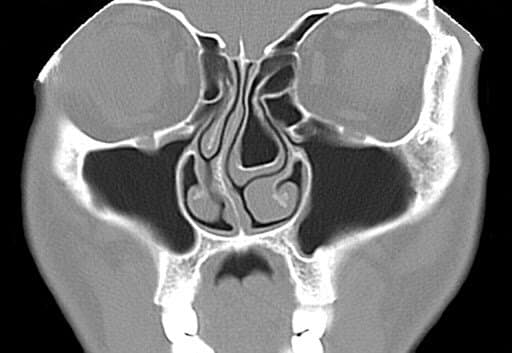Sinus Pain and Weather: Causes, Triggers, and Relief Tips
Understanding Sinus Pain Triggered by Weather
What Is Sinus Pain and How Does Weather Play a Role?
Sinus pain is a common complaint affecting millions of people, characterized by symptoms such as facial pressure, headaches, and nasal congestion. Many seek answers when they notice their discomfort coincides with changes in the weather. However, the connection between weather and sinus pain is complex. While it may be tempting to attribute every headache or stuffy nose to sinus problems, the reality is more nuanced. In fact, many instances of “sinus” pain, especially those linked to weather changes, may actually be migraines triggered or worsened by those same conditions, which is why consulting a healthcare professional is essential for accurate diagnosis.[1]
This article explores how weather affects your sinuses, the common causes of sinus discomfort during weather changes, and practical steps you can take to relieve symptoms and support sinus health.
How Do Weather Changes Influence Sinus Discomfort?
Sinus cavities are air-filled spaces within the skull, lined by delicate mucous membranes that respond to environmental changes, including weather fluctuations.
The Role of Barometric Pressure and Sinus Pain
One primary weather-related trigger for sinus pain is a shift in barometric pressure (atmospheric pressure). When storm systems approach or clear, causing air pressure to rise or fall, the pressure inside your sinus cavities can become out of sync with the external atmosphere. This imbalance may lead to feelings of tightness, pressure, and headaches.
For example, a sudden drop in air pressure before a storm can make it difficult for your sinuses to equalize, resulting in discomfort. This same mechanism can also trigger migraines in susceptible individuals. Because symptoms overlap, migraines linked to barometric pressure changes are often mistaken for sinus headaches[1][4]. Understanding this distinction is vital to seeking appropriate care.
Effects of Humidity and Temperature Fluctuations
Humidity—the amount of moisture in the air—significantly impacts sinus health. Low humidity, common during winter or in air-conditioned environments, dries out the nasal passages. This dryness causes irritation and heightens sensitivity, leading to symptoms like congestion or nosebleeds. Conversely, high humidity levels, typical of summer or rainy seasons, can cause nasal membranes to swell, resulting in stuffiness and increased mucus production.[2][3]
For example, patients have reported worsening sinus congestion during hot, humid conditions due to swollen nasal tissue restricting airflow and causing facial pressure and pain. Both extreme dryness and excessive humidity strain the sinus membranes, increasing vulnerability to discomfort.
Seasonal and Extreme Weather Triggers
Each season presents unique challenges for sinus health. Spring and summer bring elevated pollen and mold spore counts, which serve as allergens that inflame nasal tissues. Fall often features dry, cool air combined with mold from fallen leaves, while winter is marked by dry indoor air and an increased incidence of viral infections. Extreme weather events—such as cold snaps, heat waves, or storms—can abruptly alter moisture and allergen levels, disrupting sinus balance.[3]
A 2024 study observed that hospital visits for sinus-related complaints rose by up to 15% during heat waves or following sudden storms, highlighting the potential correlation between extreme weather and sinus health.[3] These patterns reinforce the influence of weather on sinus discomfort.
What Causes Sinus Pain When the Weather Changes?
Weather-related sinus pain usually arises from several key contributing factors.
Allergies and Their Connection to Weather
Allergies commonly cause sinus pain associated with changing weather. Seasonal variations mobilize airborne allergens like pollen, dust mites, and mold spores.[2][4] When inhaled, these allergens activate the immune system, triggering inflammation and congestion in nasal passages, often diagnosed as allergic rhinitis.
Dr. Susan Harris, an ENT specialist, notes, “When pollen counts increase in spring or fall, allergy sufferers typically experience heightened sinus pressure and congestion. These allergic responses can worsen existing sinus sensitivity.” Monitoring allergen exposure during these seasons may alleviate symptoms.
Sinus Infections: When Weather Plays a Role
Many people assume that a stuffy, painful head indicates a sinus infection. While sinus infections do occur and can be influenced by weather conditions, changes in weather more commonly exacerbate migraine symptoms that mimic sinus pain. However, weather may indirectly promote sinus infections by drying or irritating nasal linings, weakening their natural defenses and allowing viruses or bacteria to invade, potentially leading to acute sinusitis.[1]
For example, a cold spell followed by dry indoor heating can dry out nasal tissues, increasing vulnerability to infection. Recognizing these risk factors supports timely prevention and treatment.
Environmental Irritants and Air Quality
Weather also impacts the air quality we breathe, affecting sinus health. Pollution, wildfire smoke, dust, and wind-borne irritants can inflame sinus passages, especially in individuals with allergies or sensitive nasal mucosa.[3]
Storms and strong winds may stir up dust and pollen, while heat waves can concentrate pollutants. After wildfires, many patients report aggravated sinus symptoms due to smoke and particulate matter. Monitoring local air quality indices and limiting exposure during poor conditions can help reduce sinus irritation. Air quality awareness is crucial for sinus care during adverse weather.
How to Identify Weather-Triggered Sinus Pain Symptoms
Distinguishing between sinus pain, migraines, and allergies is challenging, given overlapping symptoms. Common signs of weather-related sinus pain include:
- Facial pressure or fullness, especially around the forehead, eyes, and cheeks
- Dull or throbbing headaches
- Nasal congestion or blockage
- Post-nasal drip with mucus draining down the throat
- Symptom worsening that correlates with specific weather changes, such as before storms or in dry conditions
Migraines sensitive to barometric pressure often mimic sinus pain but typically include additional symptoms like light sensitivity, nausea, and usually one-sided head pain.[1][4] If your headaches align with these patterns or do not improve with usual sinus remedies, consulting a healthcare professional is recommended to ensure accurate diagnosis. For more guidance, see our Symptoms of Sinus Problems resource. Proper assessment is key to effective treatment.
Managing Sinus Pain During Weather Changes: Prevention and Relief
Proactive measures can help minimize sinus discomfort during challenging weather conditions.
Preventive Lifestyle Measures
- Stay hydrated: Drinking adequate water keeps your sinus membranes moist and less prone to irritation.[3][4] Aim for at least eight glasses daily, increasing intake during physical activity or dry environments.
- Use a humidifier: Adding moisture to dry indoor air, especially in winter, helps soothe nasal linings and prevents dryness. Ensure regular cleaning to avoid mold buildup. Learn more in Why Humidifiers Help ENT Conditions.
- Maintain a clean environment: Regular ventilation reduces indoor pollutants and allergens. Using an air purifier can further remove fine particulate matter, particularly during allergy season or post-storm. Avoid smoke, harsh chemicals, and tobacco smoke for better sinus health. For additional advice, visit our Breathe Sleep Better Blog.
Home Remedies for Quick Sinus Pain Relief
- Nasal irrigation: Using saline rinses with a neti pot or sinus rinse bottle can flush out allergens and mucus effectively. Daily or as-needed use often provides significant improvements. More details are available in Nasal Rinses: How Often Should You Use Them?.
- Warm compresses: Applying a warm, damp cloth to the face loosens mucus and eases facial pressure. This accessible remedy can provide quick comfort. Learn about its benefits in Understanding Sinus Heat Compress.
- Over-the-counter options: Decongestants and saline sprays might offer temporary relief but should be used cautiously and only as directed to avoid rebound congestion or irritation.
When to Seek Medical Help
Consult a healthcare provider, preferably an ENT specialist, if you experience:
- Severe symptoms that last longer than 10 days or progressively worsen
- High fever, thick yellow or green nasal discharge, or facial swelling
- Headaches that are debilitating or unresponsive to usual treatments
- Uncertainty whether symptoms are sinus-related or due to migraines
If you’re unsure about when to see a specialist, our guide When Should I See an ENT? outlines key signs warranting professional evaluation. Early consultation can lead to accurate diagnosis and targeted treatment.
Common Questions About Weather and Sinus Pain
Can weather changes cause sinus infections or just trigger pain?
Weather changes primarily trigger sinus pain through inflammation and allergic reactions but also can increase infection risk by creating conditions that dry or irritate nasal passages, undermining their defenses against viruses and bacteria.
How can I tell if my sinus pain is a migraine or sinusitis?
Migraines often include light sensitivity, nausea, and one-sided head pain, whereas sinusitis typically causes facial pressure, nasal congestion, and colored mucus. Because symptoms may overlap, professional evaluation is recommended to determine the exact cause.
Are humidifiers safe to use year-round?
Yes, humidifiers are generally safe if cleaned regularly to prevent mold and bacterial growth. Proper maintenance is essential for safe, year-round use.
What are effective non-medication treatments for sinus pain?
Saline nasal rinses, warm compresses, humidifiers, staying well hydrated, and improving air quality with purifiers are effective, drug-free ways to alleviate weather-related sinus symptoms.
Do allergies always worsen sinus symptoms during seasonal changes?
Not always, but seasonal rises in allergens like pollen and mold frequently exacerbate sinus inflammation. Monitoring allergen levels and minimizing exposure can reduce symptoms.
Taking Control of Your Sinus Health in Changing Weather
Changing weather can stress your sinuses, but understanding your symptoms and triggers is the first step toward relief. By staying well-hydrated, improving indoor air quality, and using simple home remedies, you can reduce sinus discomfort—even when the weather is unfavorable. If symptoms persist, worsen, or you are uncertain about their cause, seek professional evaluation. Proper diagnosis leads to tailored treatment and lasting relief.
To explore treatment options or schedule an appointment with the Sleep and Sinus Centers of Georgia, visit our Symptoms of Sinus Problems page or consult our When Should I See an ENT guide. Taking control of your sinus health means weather-related pain doesn’t have to hold you back.
References
- https://pmc.ncbi.nlm.nih.gov/articles/PMC10979036 — Barometric pressure and migraine: A review
- https://entcet.com/patient-resources/nose-sinus/how-seasonal-weather-changes-can-affect-your-sinuses — Seasonal Weather Changes and Sinus Health
- https://www.uhhospitals.org/blog/articles/2024/11/how-extreme-weather-events-affect-sinus-health — Extreme Weather and Sinus Health
- https://www.ct-ent.com/blog/how-weather-changes-impact-sinus-health — Weather Changes and Their Impact on Sinuses
If you found this article helpful, explore more tips in our Breathe Sleep Better Blog and learn about Nasal Rinses: How Often Should You Use Them? for comprehensive, year-round sinus care!
Ready to find relief? Book an appointment with our sinus specialists today and take the first step toward better sinus health.
This article is for educational purposes only and is not medical advice. Please consult a qualified healthcare provider for diagnosis and treatment.
Don’t let allergies slow you down. Schedule a comprehensive ENT and allergy evaluation at Sleep and Sinus Centers of Georgia. We’re here to find your triggers and guide you toward lasting relief.





